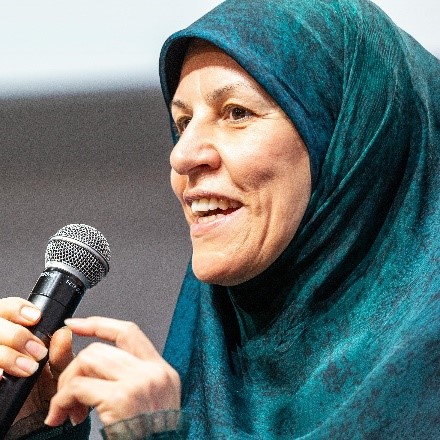Leadership
Hon. Dr. Layla Alkhafaji

Eventually, she was forced to sign “an execution agreement,” which stated that if she ever joined an organization opposed to the government, she agreed to be executed. Only three months into a government-assigned job, she was arrested. After six months, she was convicted of anti-government activity – visiting a woman whose brother was in prison – and sentenced to death. The sentence was commuted to life imprisonment.
When Saddam Hussein’s invasion of Kuwait led to his defeat in the First Gulf War, international pressure grew to have the regime release political prisoners. Ms. Al-Khafaji was among those let out near the end of 1991. She had spent almost 10 years behind bars.
Still subjected to frequent harassment, she was spirited to Lebanon by her family who bribed the necessary Iraqi officials. There, along with a brother and his family who had fled earlier, she walked into the Canadian embassy and asked for asylum. She upgraded her degree, went to work for Celestica, then a subsidiary of IBM, and received Canadian citizenship. Ms. Al-Khafaji helped in drafting the new Iraqi constitution, worked on the 2005 transitional election, and was elected herself in December 2005.
Today, she is close to the party’s new president Ammar al-Hakim, son of the late Abd-al-Aziz al-Hakim, who died earlier this year.
Ms. Al-Khafaji says it was her faith that kept her going during her years in prison, and it’s her faith that she wishes to bring to fruition in the next Iraqi government. But she insists that such a government would not be a narrow theocracy. “I learned the value of multiculturalism in Canada and I’m determined to apply it here.”